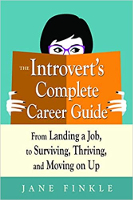
Image from Pixabay
Narrated by Marie T. Russell
Video version at the end of this article
Looking ahead to the future, it’s impossible to say what tomorrow’s workplace will bring—what transformations will occur from new trends, technology, or other forms of corporate culture. How you navigate your career moving forward will primarily depend on your willingness to adapt.
You Can’t Fight Off The Future
The survival of your career will depend on your ability and willingness to accept the rapid pace of change in today’s work world. Layoffs happen, unexpected firings occur, and organizations modify and morph. Your job description can change like a chameleon, you may shift jobs like seasonal clothing, and your organization’s managers may come and go.
There is still no escaping this inevitable flux whether you are an entrepreneur or working for a startup. Like sharks in continuous motion, businesses must keep moving to stay alive, quickly shifting and transitioning as they expand and grow. If you adhere to the following keys to survival, your career can outlast the speed of change.
8 Keys to Career Survival in the Age of Acceleration
1. Bring innovative approaches and new ideas to the workplace:
* What knowledge do you possess that others might not?
* What unique or unusual insights do you have? Where does your imagination take you?
2. Identify an emerging trend that could impact your division and organization:
* Read professional journals and publications
* Attend conferences and panel discussions
* Read books that offer progressive theories and ideas.
3. Take calculated risks:
* Try something that may seem just a little intimidating.
* If your current work situation is causing conflict, try a new approach or adjust your strategy.
* Avoid getting stuck in a rut because the usual approach is seductively familiar and comfortable.
4. Think globally to keep on top of a changing world:
* Identify key trends of globalization and how it impacts market and career opportunities.
* Take note of the following global trends causing shifts in the workplace today:
* The corporate world is shrinking.
* Work is increasingly project based.
* Competition is high.
* Conceptual skills are more in demand.
* Many jobs are created due to unmet needs.
5. Be self-directed with your career:
* Don’t expect anyone to see the future and give you a magical vision of your career yet to come.
* Along the bumpy ride of company mergers or reorganization, always be your own best advocate, and never expect that your employer will act as a benevolent uncle on your behalf. In short, take control of your career’s direction.
6. Stay savvy about your organization:
* Keep abreast of what’s going on throughout the organizational landscape.
* Listen and watch carefully to fully understand the corporate culture and behavioral norms, such as how the company is thriving, where it’s faltering, and who is on their way up or out.
* Find the best way to fit yourself into the company culture without compromising who you are.
7. Keep on top of technology:
* Don’t turn into an old dog that can’t learn new tricks.
* Remain flexible, aware of current trends, and computer sharp. Technological advances continue to accelerate and are driving turbulence and change in the workplace. Unless you keep up to date and ensure that you are technically agile, you are in danger of becoming irrelevant and dispensable.
* Don’t fear technology; embrace it as an ally, and may the force be with you as you advance your knowledge and succeed in tasks that can lead to career advancement.
8. Be very good at what you do:
It is unrealistic to expect that you will be the headliner in every storyline at your workplace. However, your efforts, input, and results should demonstrate to management and colleagues that you are a key contributor who performs at a highly productive level. Whereas building relationships and communicating effectively both orally and in writing are important to your success story, you must equally demonstrate your ability to master major tasks and responsibilities with finesse and confidence.
Take Care of Yourself
As you know, introverts can’t be “on” 100 percent of the time; you need time to restore your energy before jumping back into the stress of everyday life and work. Taking these moments to “recharge” and “unplug” from work and technology is essential to maintain a healthy work-life balance and improve your overall quality of life.
Recharge
Susan Cain, author of the bestselling book, Quiet, coined the term, “restorative niches,” meaning “the place you go when you want to return to your true self.” All the energy and effort you put forth as you speak up and interact with groups in your work can easily deplete an introvert’s energy. To recharge, find a moment during the day and a peaceful place to be alone, so you can return to feeling like yourself. Close your office door for a short time, take a walk during lunch or another break, or perhaps find a quiet hallway outside your office where you can decompress.
If you work at home and find yourself on the phone with clients and emailing customers all morning, take a few breaks during the day to clean your desk, go to the grocery store, or just sit in a quiet space for a while somewhere in your house or apartment. Sometimes work requires you to be “on” all day, and your restorative niche might simply be later in the day at home in front of the TV or in your bedroom reading a book.
Unplug
Employers are faced with high demands of production in this economy and expect employees to deliver strong and measurable results. Cell phones, email, and texting all conspire to accelerate work, and create clients and customers who demand immediate attention. With all these external pressures, you may work longer and harder, and could be in danger of slowly slipping into a toxic state of workaholism.
Introverts are at risk of overextending themselves, because they prefer communicating behind the scenes using technology. You may have a natural aversion to confronting challenges head-on at the time they emerge and instead find yourself using text or email after work hours to try to force the resolution of an issue.
To break this habit, make a commitment to turn off your computer and cell phone before dinner or early in the evening. Otherwise, you will find yourself floating in cyberspace after hours, losing more of your time on this planet with friends and family.
Face the fact that your desk will never be completely clear; that is why they call it “work.” So, unless there is truly an urgent matter at hand from which you cannot divorce, give yourself an opportunity to exercise different muscles. Making time for hobbies and personal interests can rechannel your energy, and you will likely be happier and more productive in the office, too.
Work can be an energizing and powerful way to express your talents, display your skills, and make an impact. Just don’t allow work to control your existence, or you will miss out on the endless array of fascinating and enlivening aspects of life that you have every right to experience and enjoy.
©2019 by Jane Finkle. All Rights Reserved.
Excerpted with permission of the author.
Publisher: Weiser Books, an imprint of RedWheel/Weiser.
Article Source
The Introvert's Complete Career Guide: From Landing a Job to Surviving, Thriving, and Moving on Up
by Jane Finkle
 In today's fast-paced, unstable workplace achieving success requires speaking up, promoting oneself and one's ideas, and taking initiative. Extroverts, fearless in tooting their own horns, naturally thrive in this environment, but introverts often stumble. If you question your ability to perform and succeed in this extroverted work culture, The Introvert's Complete Career Guide is custom fit for you. In this supportive, all-inclusive handbook, Jane Finkle demonstrates how to use your introverted qualities to their best advantage, then add a sprinkling of extroverted skills to round out a forceful combination for ultimate career success. Finkle shares the keys to navigating each stage of professional development--from self-assessment and job searching, to survival in a new position and career advancement.
In today's fast-paced, unstable workplace achieving success requires speaking up, promoting oneself and one's ideas, and taking initiative. Extroverts, fearless in tooting their own horns, naturally thrive in this environment, but introverts often stumble. If you question your ability to perform and succeed in this extroverted work culture, The Introvert's Complete Career Guide is custom fit for you. In this supportive, all-inclusive handbook, Jane Finkle demonstrates how to use your introverted qualities to their best advantage, then add a sprinkling of extroverted skills to round out a forceful combination for ultimate career success. Finkle shares the keys to navigating each stage of professional development--from self-assessment and job searching, to survival in a new position and career advancement.
For more info, or to order this book, click here. (Also available as a Kindle edition, an MP3 CD, and as an Audiobook.)
About the Author
 Jane Finkle is a career coach, speaker and author with over 25 years of experience helping clients with career assessment and workplace adjustment. Jane served as Associate Director of Career services at the University of Pennsylvania where she created and led the Wharton Career Discovery seminar, and served as liaison to recruiters from major corporations. Her newest book is The Introvert's Complete Career Guide: From Landing a Job to Surviving, Thriving, and Moving on Up. For more info, visit www.janefinkle.com.
Jane Finkle is a career coach, speaker and author with over 25 years of experience helping clients with career assessment and workplace adjustment. Jane served as Associate Director of Career services at the University of Pennsylvania where she created and led the Wharton Career Discovery seminar, and served as liaison to recruiters from major corporations. Her newest book is The Introvert's Complete Career Guide: From Landing a Job to Surviving, Thriving, and Moving on Up. For more info, visit www.janefinkle.com.



























